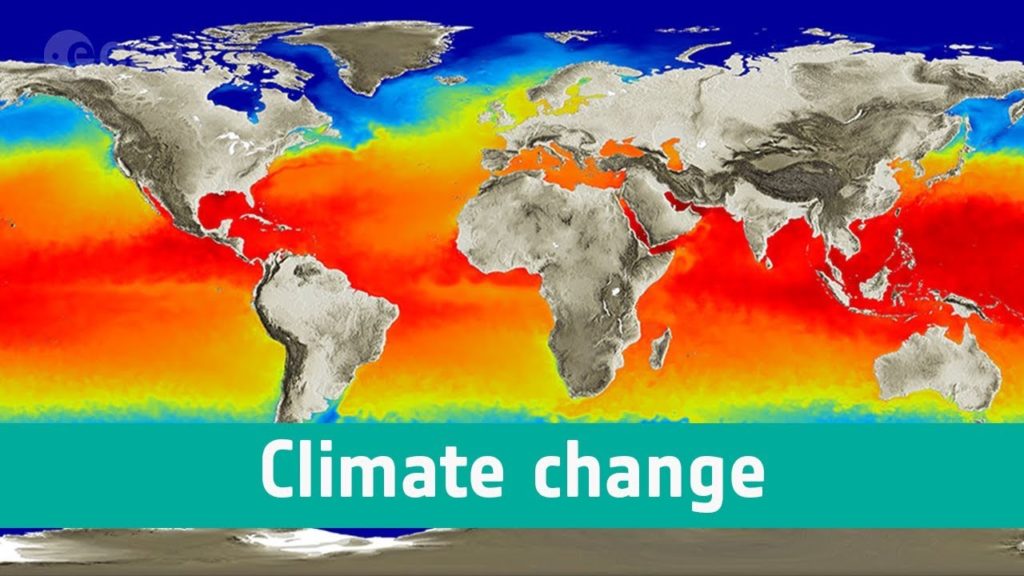THE Environment ministry has warned that the country could experience more devastating climate change effects, which are likely to have an effect on the economy in the next two years.
Speaking during a virtual meeting on climate change adaptation last week, climate change adaptation officer in the ministry of Environment, Charity Denhere said climate projections models, which run up to 2024 show that the country will suffer more from effects of climate change.
“There is likely going to be a rise in temperatures especially over the southern and western parts of the country. The other regions will also experience a rise but it will be slightly lower compared to the southern region.
“The temperature rise will be close to 1.3 degrees Celsius and one may say it’s just a slight rise in terms of temperature but the current impacts that we are experiencing are as a result of probably a one degree rise in temperature due to the impact of global warming, so it will be even more devastating,” Denhere said.
“The mean annual temperatures are also expected to rise and precipitation should decline by about 10 percent, but this should vary from place to place.
“For example, though the northern parts of the country are likely to also experience a decline in terms of precipitation, it won’t be much compared to the southern parts of the country.”
She said in terms of rainfall the projections show that there will be a general decline in terms of precipitation especially over the southern parts of the country as well as the eastern parts.
“Then in terms of floods there is going to be a likelihood of increase in the frequency and intensity of floods and then in terms of other parameters such as the mid-season dry spells, there is likely to be an increase in terms of intensity and frequency of mid-season dry spells and even their length.
“In terms of extreme weather events there is likelihood of intensity and frequency of tropical cyclones and also an increase of occurrence of droughts from the projections. All this will affect agriculture and there will be an increase in human and wildlife conflicts”.
This comes as the United Nations International Children’s Emergency Fund (Unicef) has called for more investment to fight mental health in children in Zimbabwe as climate change was worsening their well-being.
Speaking at the same meeting Unicef representative in Zimbabwe, Tajudeen Oyewale said the crisis of climate change being experienced across the world has huge consequences on the health and well-being of children.
“Uncertainty in weather conditions such as droughts and the changing rainfall patterns are leading to crop failures and rising food crises.
“And when we have food insecurity the nutritional implications are clear but more importantly they lead to deprivation for children.
“Nutrition has a value for the mental development of children and a child who is exposed to malnutrition early in life will not be able to actualise their full potential,” said Oyewale.
Oyewale added that for children who are disadvantaged, the stakes are higher, as poorer families find it harder to be able to cope with the shock and implications of climate events.
“The most vulnerable will often lose their homes, health, access to education and these will perpetrate the cycle of inequalities among children. Climate change will be a direct threat to the children’s ability, to survive and grow, to thrive and to reach their full potential in life.
“Children are among the most vulnerable to diseases that become more widespread because of climate change,” he said.
Oyewale also said since the country is increasingly experiencing severe climate change effects such as droughts and cyclones children will be the most affected.
“Between 2030-2050 climate change is expected to cause approximately 250 000 additional deaths per year from malnutrition, malaria and diarrhoea and this will disproportionately affect children hence more investment is needed to counter effects of climate change”.
This comes as the ministry of Environment is set to conduct public consultations to establish the root cause of climate change in the country and possible solutions ahead of the Stockholm@50 Conference scheduled for Sweden in early June.
The national consultations are set to be conducted in conjunction with the UN environment programme.
